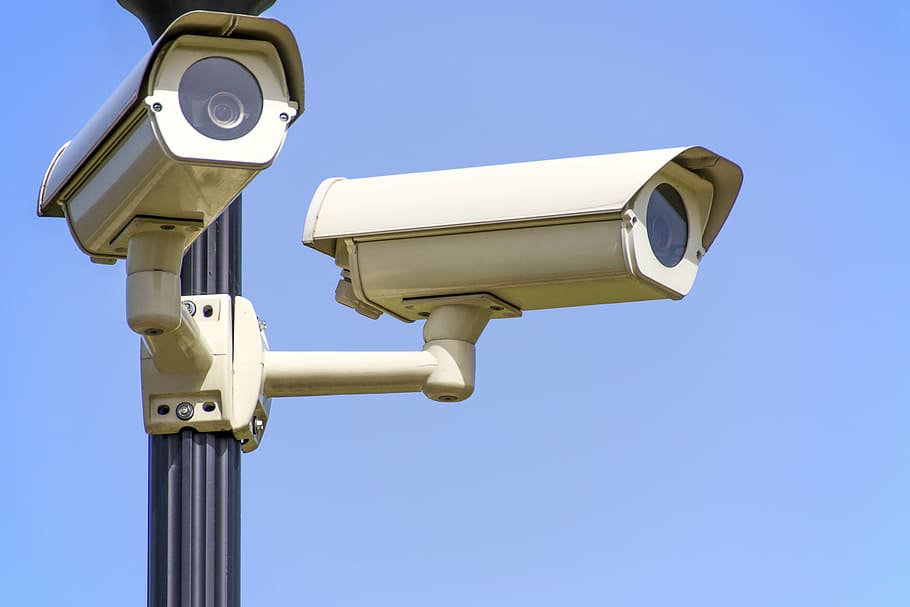Keep the National Counterterrorism Center’s Focus Off of Americans

On Sept. 25, President Trump released a new National Security Presidential Memorandum (NSPM) to counter domestic terrorism and organized political violence. The president issued the NSPM following the Sept. 10 assassination of Charlie Kirk and other recent heinous attacks that were likely driven by political animus. It declares that the “United States requires a national strategy to investigate and disrupt networks, entities, and organizations that foment political violence so that law enforcement can intervene in criminal conspiracies before they result in violent political acts.” The NSPM appropriately tasks domestic law enforcement agencies with this duty.
Releasing the NSPM was the right call. One of the federal government’s highest obligations is to ensure domestic tranquility. But there is a right way and a wrong way to meet the challenge of this dangerous moment. Mobilizing agencies deeply rooted in the foreign intelligence infrastructure to look inward at domestic threats, as the last administration did, was the wrong way.
In 2021, the Biden White House, eager to tackle domestic terrorism, released a strategy that called for a “whole of government approach” in which “every component of the government ha[d] a role to play” to “protect Americans from …hatred.” The strategy included combating what the administration deemed to be “misinformation and disinformation,” and empowering various aspects of the intelligence community apparatus such as the National Counterterrorism Center (NCTC) to analyze and disseminate information about Americans engaging in “suspicious activity.” A well-documented string of abuses followed, including a document produced by NCTC and others that labeled Covid dissenters as “domestic violent extremists.”
President Trump deserves credit for reversing these misguided policies. The president has issued executive orders designed to uncover past abuses of the federal government, strengthen free speech protections, and boost transparency and accountability within the intelligence community. The administration has also declassified documents, including a 2021 internal strategy document that invited foreign surveillance of Americans by “obtain[ing] from foreign partners foreign intelligence and information related to U.S.-based violent extremism.” And the president’s NSPM on countering domestic terrorism commendably excludes NCTC, a foreign intelligence-focused fusion center.
Congress should take action to support these efforts, and the fiscal year 2026 Intelligence Authorization Act (FY26 IAA) presents the perfect opportunity. A provision authored by the chairman of the Senate Select Committee on Intelligence, Sen. Tom Cotton (R-Ark.), would guarantee that the NCTC remains focused on foreign threats and cannot be turned inward against Americans in pursuit of domestic objectives. Specifically, it limits NCTC to “disseminate intelligence pertaining only to international terrorism.” The provision would prohibit NCTC from producing any intelligence reports solely focused on domestic terrorism and permit NCTC to utilize domestic intelligence only insofar as it advances the NCTC’s efforts to combat international terrorism.
Sen. Cotton’s proposal largely mirrors one of the recommendations I made last year in my capacity as a member of the Privacy and Civil Liberties Oversight Board (PCLOB). As part of the PCLOB’s December 2024 Report on the National Counterterrorism Center, I recommended that NCTC revise its implementation procedures to better reflect congressional limits on NCTC’s activities concerning purely domestic terrorism.
As I noted in that report, domestic terrorism poses a serious threat to the American public. But domestic law enforcement—not the NCTC or any other intelligence agency—has the primary mission of threat detection operations within the United States.
The NSPM assigns to the National Joint Terrorism Task Force and its local offices (JTTFs) the duty to “investigate, prosecute, and disrupt” acts of violence associated with domestic terrorism. The JTTFs are partnerships of federal, state, and local law enforcement officers accountable to the judicial system and driven by a law enforcement mission of proving offenses in open court using admissible evidence. They have deep experience investigating and thwarting homegrown threats.
The NCTC, by contrast, has a foreign intelligence mission and is staffed by many detailees from the CIA, National Security Agency, and other outward-facing agencies. NCTC was designed to break down the “stovepipes” of intelligence that prevented information sharing that would have identified the al-Qaeda terrorists plotting the Sept. 11, 2001, terrorist attacks. The Intelligence Reform and Terrorism Prevention Act of 2004 that created NCTC, however, prudently excepted domestic terrorism from NCTC’s role as the primary agency to integrate and analyze intelligence for counterterrorism purposes. But as the PCLOB found in its report last year, NCTC began expanding its footprint in the domestic terrorism space in the late 2010s, with NCTC personnel providing support to the FBI and Department of Homeland Security in specific cases, joint intelligence analysis, real-time incident reporting, and “strategic operational planning.”
Congress curtailed this mission creep in the fiscal year 2023 Intelligence Authorization Act by directing NCTC not to prepare or contribute to intelligence products without a foreign nexus. In our December 2024 report, the PCLOB determined that NCTC, consistent with that congressional direction, had ceased the issuance of analytic contributions and products concerning terrorist threats without an international connection.
But such funding directives must be included in legislation on an annual basis and thus risk being only temporary. Now, Congress has the opportunity to create a permanent fix to this issue by statutorily limiting any future work by NCTC that is focused on domestic terrorism.
Americans will be better off with permanent, explicit limits on NCTC’s role in purely domestic intelligence gathering and dissemination. NCTC was created to lead the nation’s effort to protect the United States from foreign terrorism, and it should continue to do that work. Sen. Cotton’s provision in the Senate Select Committee on Intelligence’s FY26 IAA will help improve the balance between doing what is needed to stop terrorism while protecting Americans’ privacy and civil liberties.



